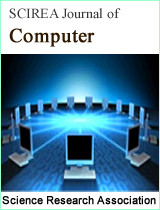Deductive Reasoning Based on the Aristotelian Modal Syllogism □AE◇O-2
DOI: 10.54647/computer520426 30 Downloads 12931 Views
Author(s)
Abstract
This paper first symbolizes the propositions involved in Aristotelian modal syllogisms from the perspective of mathematical structuralism, then proves the validity of the Aristotelian modal syllogism □AE◇O-2 by relevant definitions, and finally deduces the other 26 valid Aristotelian modal syllogisms from the syllogism □AE◇O-2 in line with some reasoning rules and definitions. This indicates that there are reducible relations between/among different syllogisms. This study contributes to the advancement of knowledge representation and reasoning in natural language.
Keywords
Aristotelian modal syllogisms; syllogistic reasoning; reduction; validity
Cite this paper
Zhaolong Yuan, Liheng Hao,
Deductive Reasoning Based on the Aristotelian Modal Syllogism □AE◇O-2
, SCIREA Journal of Computer.
Volume 9, Issue 4, August 2024 | PP. 87-96.
10.54647/computer520426
References
| [ 1 ] | J. Łukasiewicz. Aristotle’s Syllogistic from the Standpoint of Modern Formal Logic. Oxford: Clarendon Press, 1957. |
| [ 2 ] | Q. Cao, and J. Xu. The deductibility of the categorical syllogisms AII-1 from the perspective of knowledge reasoning. SCIREA Journal of Philosophy, Vol 9, No. 3, 2024, pp.91-98. |
| [ 3 ] | J. Qiu, and M. W. Ma. Knowledge reasoning based on the reducibility of valid generalized syllogisms. SCIREA Journal of Electrical Engineering, Vol 9, No. 1, 2024, pp.1-10. |
| [ 4 ] | T. Brennan. Aristotle’s modal syllogistic: a discussion of R. Patterson, Aristotle’s modal logic. Oxford Studies in Ancient Philosophy, Vol.15, 1997, pp.7-231. |
| [ 5 ] | L. H. Hao. Generalized syllogism reasoning with the quantifiers in modern Square{no} and Square{most}. Applied Science and Innovative Research, Vol 8, No. 1, 2024, pp.31-38. |
| [ 6 ] | F. Johnson. Aristotle’s modal syllogisms. Handbook of the History of Logic, I. 2004, pp.247- 338. |
| [ 7 ] | F. F. Yang, and X. J. Zhang. The deductibility of the Aristotelian modal dyllogism E□I◇O-4 from the perspective of mathematical structuralism. SCIREA Journal of Philosophy, Vol 4, No. 1, 2024, pp.23-33. |
| [ 8 ] | J. Xu, and X. J. Zhang. How to obtain valid generalized modal syllogisms from valid generalized syllogisms. Applied Science and Innovative Research, Vol 7, No. 2, 2023, pp.45-51. |
| [ 9 ] | H. P. Wang, and Z. L. Yuan. Knowledge reasoning for the generalized modal syllogism A□MI◇-3. SCIREA Journal of Information Science and Systems Science, Vol 8, No.4, 2024, pp.129-138. |
| [ 10 ] | M. Malink. A reconstruction of Aristotle’s modal syllogistic. History and Philosophy of Logic, Vol.27, 2006, pp.95-141. |
| [ 11 ] | L. Wei, and X. J. Zhang. How to derive the other 37 valid modal syllogisms from the syllogism ◇AI◇I-1. International Journal of Social Science Studies, Vol 11, No.3, 2023, pp.32-37. |
| [ 12 ] | A. G. Hamilton. Logic for Mathematicians. Cambridge: Cambridge University Press, 1978. |
| [ 13 ] | F. Chellas. Modal Logic: an Introduction. Cambridge: Cambridge University Press, 1980. |
| [ 14 ] | S. Peters, and D. Westerståhl. Quantifiers in Language and Logic. Oxford: Claredon Press, 2006. |
| [ 15 ] | X. D. He., et al. Logic (2th Edition). Beijing: Higher Education Press, 2018. (in Chinese) |

